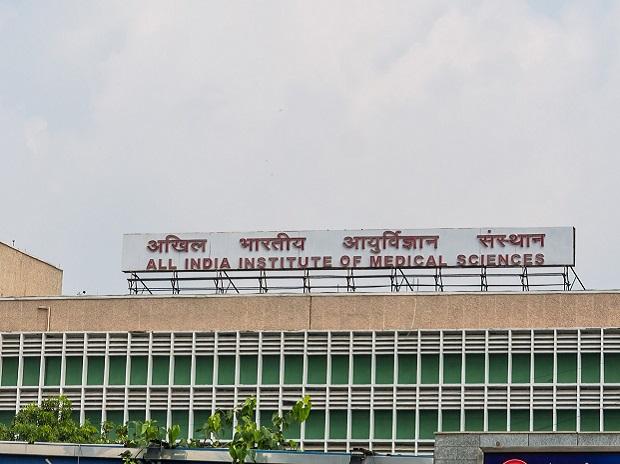[ad_1]
“It takes a special kind of devil to hamper the smooth functioning of medical institutions,” Devender Kumar (name changed), fumes as he hurries through a stack of reports, calling out the names of patients.
“If you have got your tests before November 22, you will have to wait. Those reports are now inaccessible, thanks to the cyberattack and the ongoing server clean-up. We are being told that they might be available after December 6. Please have patience,” the doctor shouts out to the teeming crowd of patients and their family members gathered in front of the specialty lab in the new Rajkumari Amrit Kaur building at the All India Institute of Medical Sciences (AIIMS) in New Delhi.
Such scenes are playing out on the 115-acre campus of the country’s premier medical institute, which houses 43 departments and more than 24,000 medical practitioners including students, nursing staff and senior physicians.
AIIMS faced a cyberattack on November 23, which derailed routine health services and affected thousands of patients and doctors alike. The cyberattack has slowed down everyday work including appointments and registration, billing, and generation of laboratory reports and patient records. According to officials, the ransomware attack corrupted all the files stored on the main and backup servers of the hospital.
Reena Channa, who booked a flight in the first week of January to New York for a conference and certificate course at a university, had to provide her samples twice for a mandatory blood test required by the university. “The first test results are not available. I applied for an urgent second test on November 25, and was told the results will be available within 24 hours, but it has been two days with no sign of the report,” she says.
Officials at the specialty lab are unable to help patients much. “We have more than 4,000 handwritten reports for as many tests, which are now being conducted manually,” says an official. While the AIIMS lab technicians, doctors and nursing staff are working overtime, they are also urging patients to approach other hospitals, pathology labs and nursing homes if they require test results urgently.
In an official statement, AIIMS on Tuesday said: “The e-Hospital data has been restored on the servers. The network is being sanitised before the services can be restored. The process is taking some time due to the volume of data and a large number of servers/computers for the hospital services.”
Indeed, some of the more emergency testing and healthcare facilities have slowly begun to get back on track. At the ultrasound facility, diagnostic images are now available even though the written reports will take time.
The inconvenience is more palpable at the family medicine OPD, where staffers are seen carrying gigantic stacks of registers for transcribing daily patient data. A senior physician, who does not wish to be named, says, “It’s much better now. Three days into the hack, we were keying in patient data freshly into these registers, and updating them manually through each stage of the patient’s check-up.”
A staff member at the OPD reveals that they were scrambling to get offline patient records photocopied and printed, to be made available for the physicians. AIIMS’ team of patient coordinators is also working overtime, helping with queries, collection and retrieval of reports, and filling forms. Piles of blue registration forms can be seen lying near reception counters, for each patient to write again. According to a patient, the forms had to be filled every time they returned to the medical institute over the past five days.
The staff members also say that the situation is worse vis-à-vis inventory, as the authorities have been forced to retrieve numbers on medicine and equipment stock through hard-copy billing receipts, prints of saved data and, in some cases, a manual count of the medicine vials and equipment registered to each department.
The authorities have already initiated conversations with top government and private tech firms for future management of their computer and IT-related functions. The AIIMS administration has also suspended two junior analysts of its computer facility, managed by the central government’s technology partner NIC. The facility, however, is understaffed and is being managed by a handful of medical and technical staff.
[ad_2]
Source link



